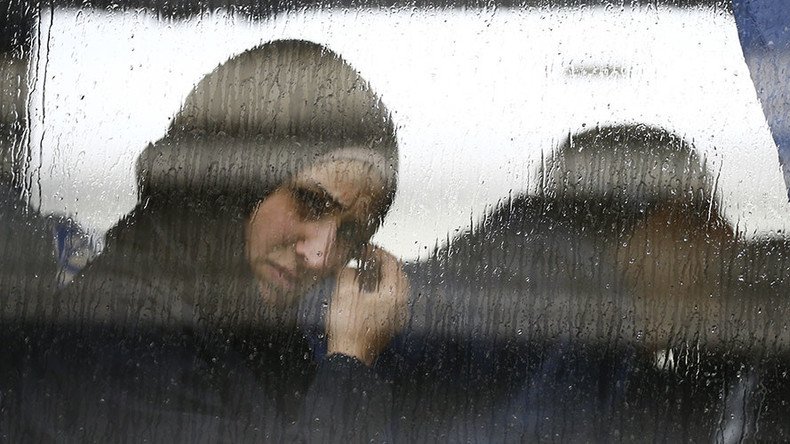Islamophobia rising in Germany following influx of Muslim refugees – study

Germany is seeing a rise in Islamophobia, according to a new study which highlights the tensions surrounding the recent influx of refugees. More than 40 percent of residents said they believe Muslims should be forbidden from coming to Germany.
The study – conducted by researchers at the University of Leipzig in co-operation with the Heinrich Boell Foundation, the Rosa-Luxemburg Foundation, and the Otto-Brenner foundation – surveyed a total of 2,420 Germans.
The 40 percent who said Muslims should be banned from coming to Germany is significantly higher from 2009, when just one-fifth expressed the same sentiment.
In addition, every second respondent said they sometimes feel like a foreigner in their own country, due to large number of Muslims living in Germany, according to Reuters report. That number is compared to 43 percent in 2014 and 30.2 percent in 2009.
Unsurprisingly, members of the far-right Alternative for Germany (AfD) party were most likely to favor stopping Muslims from coming to Germany. The anti-immigration party, which supports a full ban on minarets and the burqa, has described Islam as incompatible with the German constitution.
Meanwhile, Green voters were most likely to disagree with the statement that Muslims made them feel like foreigners.
Slightly more than 80 percent of the study's respondents wanted the government to not be too generous when examining asylum applications.
Almost 40 percent of respondents in the former East Germany agreed with the statement that foreigners only come to the country to take advantage of it social welfare benefits. That's compared to about 30 percent in the former West Germany.
But although negative feelings towards Muslims have risen in recent years, general prejudice against migrants has actually fallen.
"While general prejudice against migrants fell slightly, the focus of resentment towards asylums seekers, Muslims as well as Sinti and Roma, increased," Reuters quoted the study's authors as saying.
Immigration to save Europe from ‘degenerating into inbreeding’ – German finance ministerhttps://t.co/P9SBewi3aJpic.twitter.com/NwjC8CfAMJ
— RT (@RT_com) June 12, 2016
The study's Wednesday release came just two days after German President Joachim Gauck warned against demonizing Muslims and against polarization along religious and ethnic lines in German society while taking part in a Ramadan dinner in Berlin.
Meanwhile, a study published in May found that 60 percent of citizens agreed with the idea that there is “no place for Islam in Germany.”
Chancellor Angela Merkel has passionately disagreed with such statements, championing an open-door policy for those fleeing war and persecution. That policy has led to widespread criticism from many, with an April poll by FG Wahlen showing public support for Merkel at the lowest of her third term, which began in 2013.
Nearly 4 million Muslims – about 5 percent of the population – live in Germany. The country welcomed more than 1 million migrants last year amid Europe's refugee crisis, most of whom were Muslims fleeing Syria's civil war.














